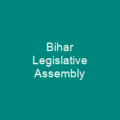The Role of a Speaker in Legislative Assemblies
Imagine the speaker as the conductor of an orchestra, guiding the harmonious flow of debate and ensuring that every voice is heard. In a deliberative assembly or legislative body, the speaker’s role is pivotal—moderating discussions, making rulings on procedure, and announcing vote results. This position has roots dating back to 1377 in England, where Thomas de Hungerford was first referred to as such during his tenure in Parliament.
Key Responsibilities of a Speaker
The speaker’s official duties are multifaceted. They must maintain order and fairness, ensuring that debates remain civil and productive. This is no small feat, considering the diverse opinions and perspectives within any legislative body. The speaker also has the authority to make rulings on procedural matters, which can significantly impact the outcome of discussions.
Addressing the Speaker
When addressing a speaker, members often use titles such as ‘Mister Speaker’ or ‘Madam Speaker.’ These terms reflect respect and acknowledgment of their role. Additionally, many speakers have an office dedicated to supporting them in their duties, much like a stage manager for a play.
Differences Across Countries
The title and responsibilities of the speaker can vary widely across different countries. For instance, in Armenia, the speaker is referred to as the ‘president of the National Assembly,’ while in Australia, there are separate speakers for both the House of Representatives and Senate.
Examples from Around the World
In Brazil, the Federal Senate has a president, and the Chamber of Deputies has a speaker. In Canada, the House of Commons is presided over by a speaker, while the Senate uses different titles for its presiding officer. The role of the speaker in Quebec differs slightly, as their vote counts equally with other members except in cases where there’s a tie.
Provincial and National Levels
At the provincial level, terms like ‘speaker’ are used outside of Quebec, while the president is used in Chile. In China, if the president or vice-president becomes incapacitated, the chairman of the Standing Committee of the National People’s Congress acts as a temporary substitute.
Unique Roles and Titles
The speaker’s role can vary significantly from one country to another. For example, Singapore’s speaker is elected by members of parliament (MPs), while in Hong Kong, the speaker must be a Chinese national without right of abode. In Italy, the president acts as both deputy president of the republic and defense for members and the assembly as a whole.
Presiding Officers in Various Countries
In New Zealand, members are required to address the speaker, while in Singapore, the speaker can be an MP but must possess qualifications to stand for election. In Spain, the speaker is elected among Congress members and holds significant authority after the king and prime minister. Taiwan’s Legislative Yuan has a president who presides over meetings and is elected by legislators.
Electing or Appointing a Speaker
The process of electing or appointing a speaker can vary widely. In the UK, the speaker of the House of Commons is elected by fellow MPs, while in the House of Lords, it’s elected by members of the upper house. In other countries like the United States Congress, the speaker of the lower house is chosen by the entire chamber and plays a crucial role in running the legislative branch.
Power Dynamics
The power dynamics surrounding the speaker can also differ significantly. Some presiding officers have more authority to discipline members than others, making their role even more critical within the legislative process.

In conclusion, the role of a speaker or presiding officer is multifaceted and crucial for maintaining order and fairness in legislative assemblies. Whether it’s moderating debates, making rulings on procedure, or announcing vote results, their responsibilities are essential to ensuring that every voice is heard. As we’ve seen, these roles can vary widely across different countries, reflecting the unique needs and structures of each legislative body.
You want to know more about Speaker (politics)?
This page is based on the article Speaker (politics) published in Wikipedia (retrieved on December 26, 2024) and was automatically summarized using artificial intelligence.







